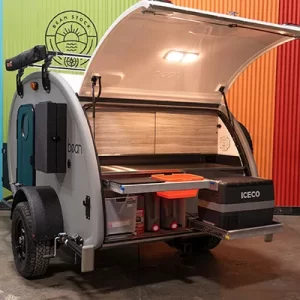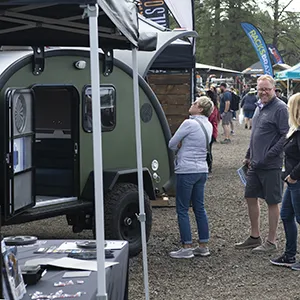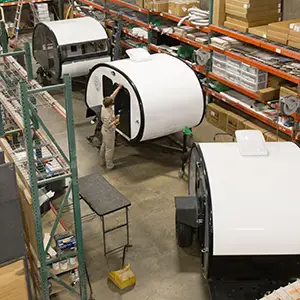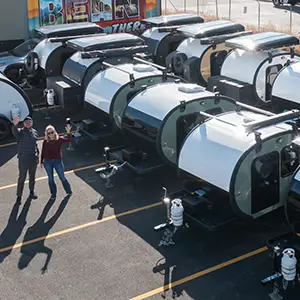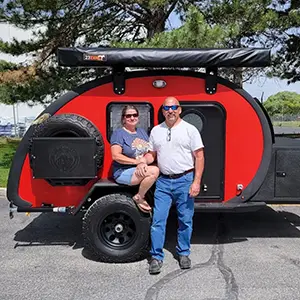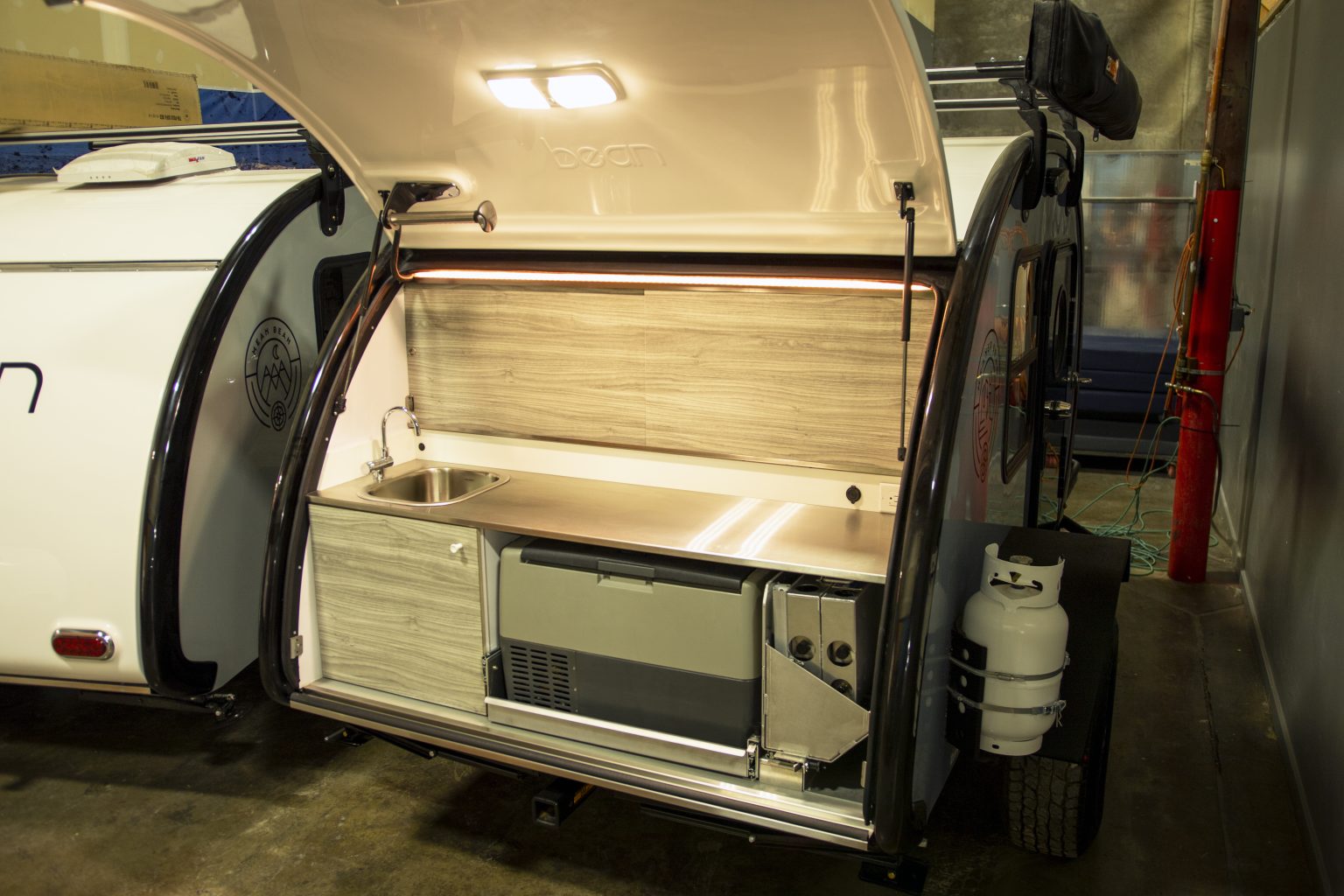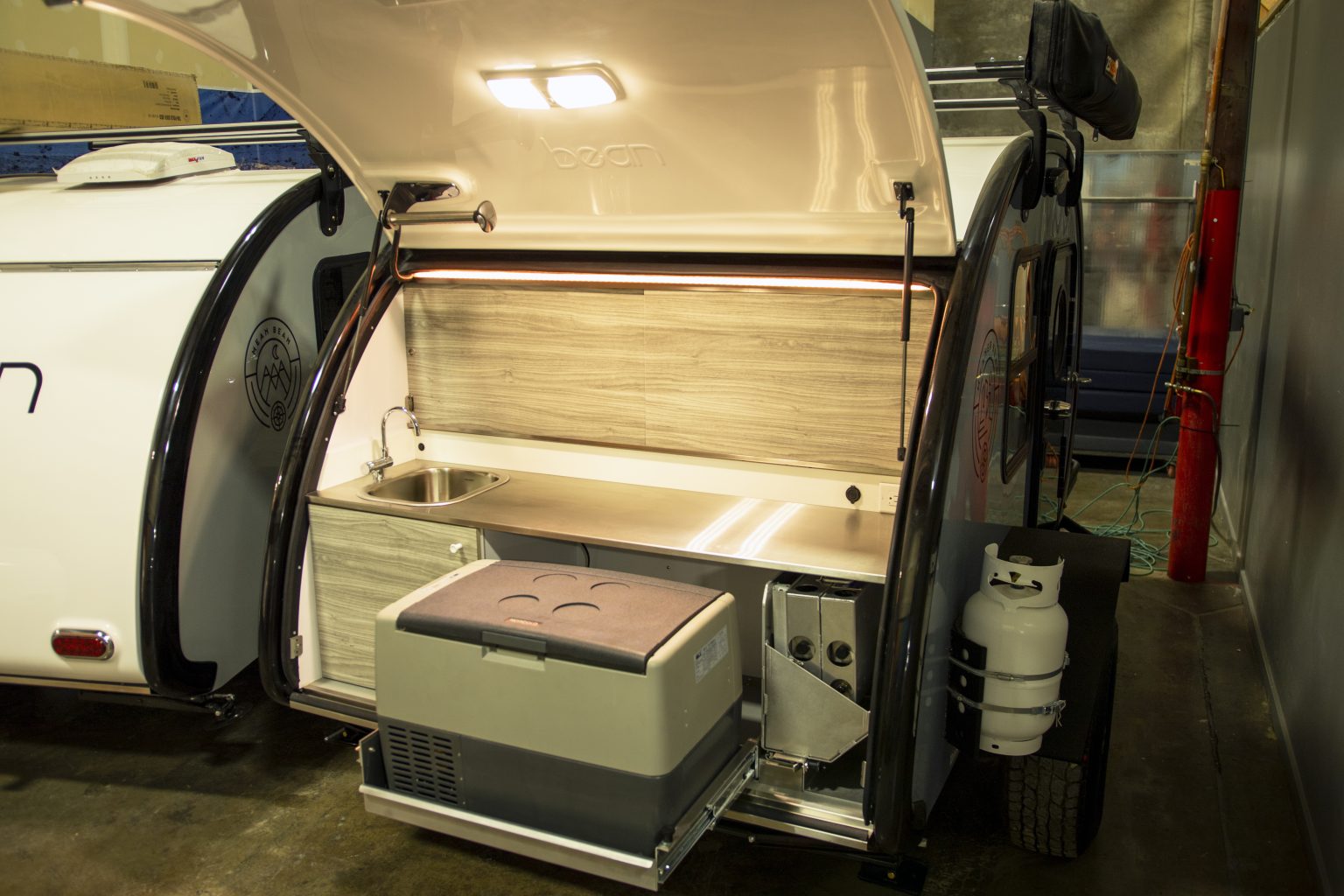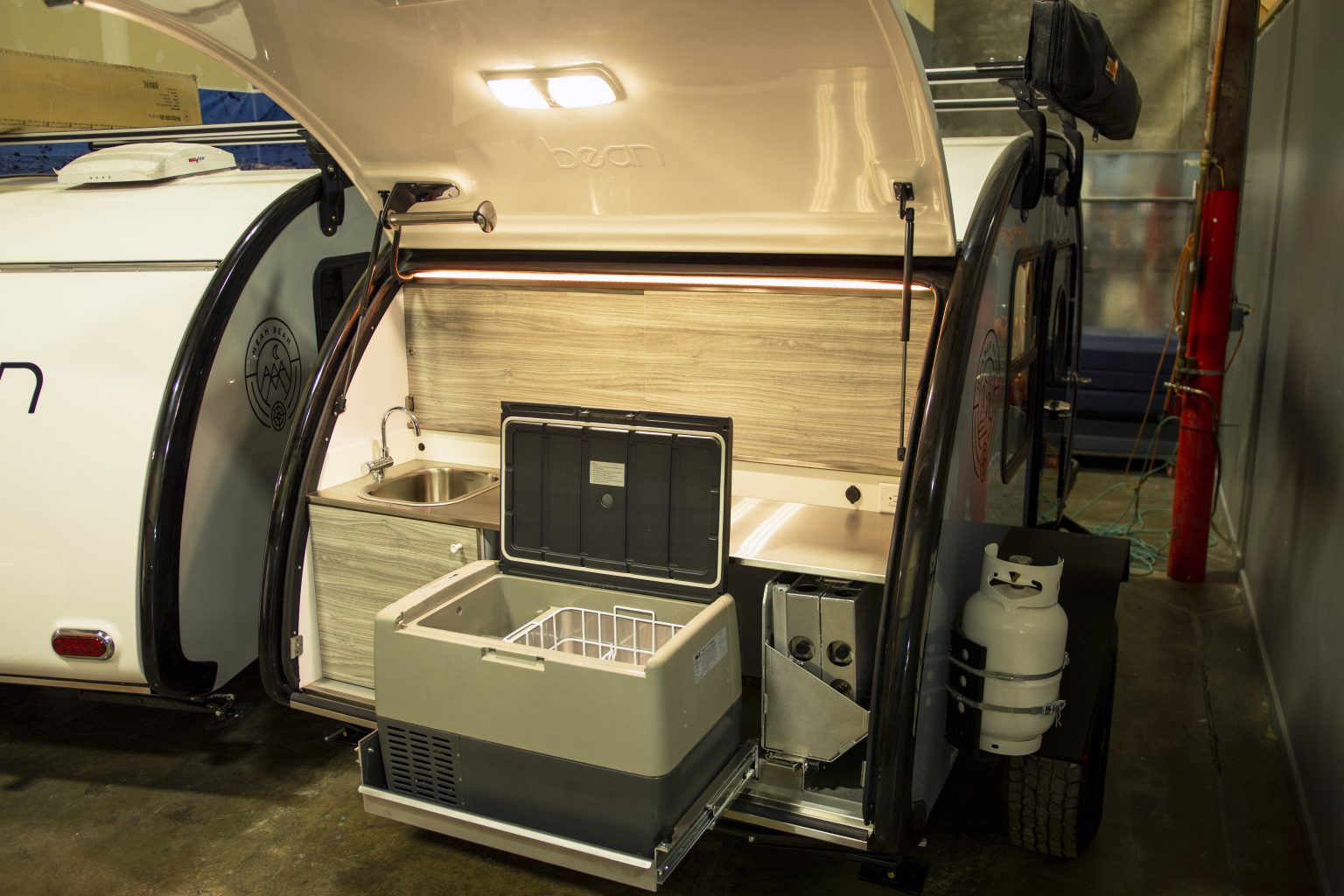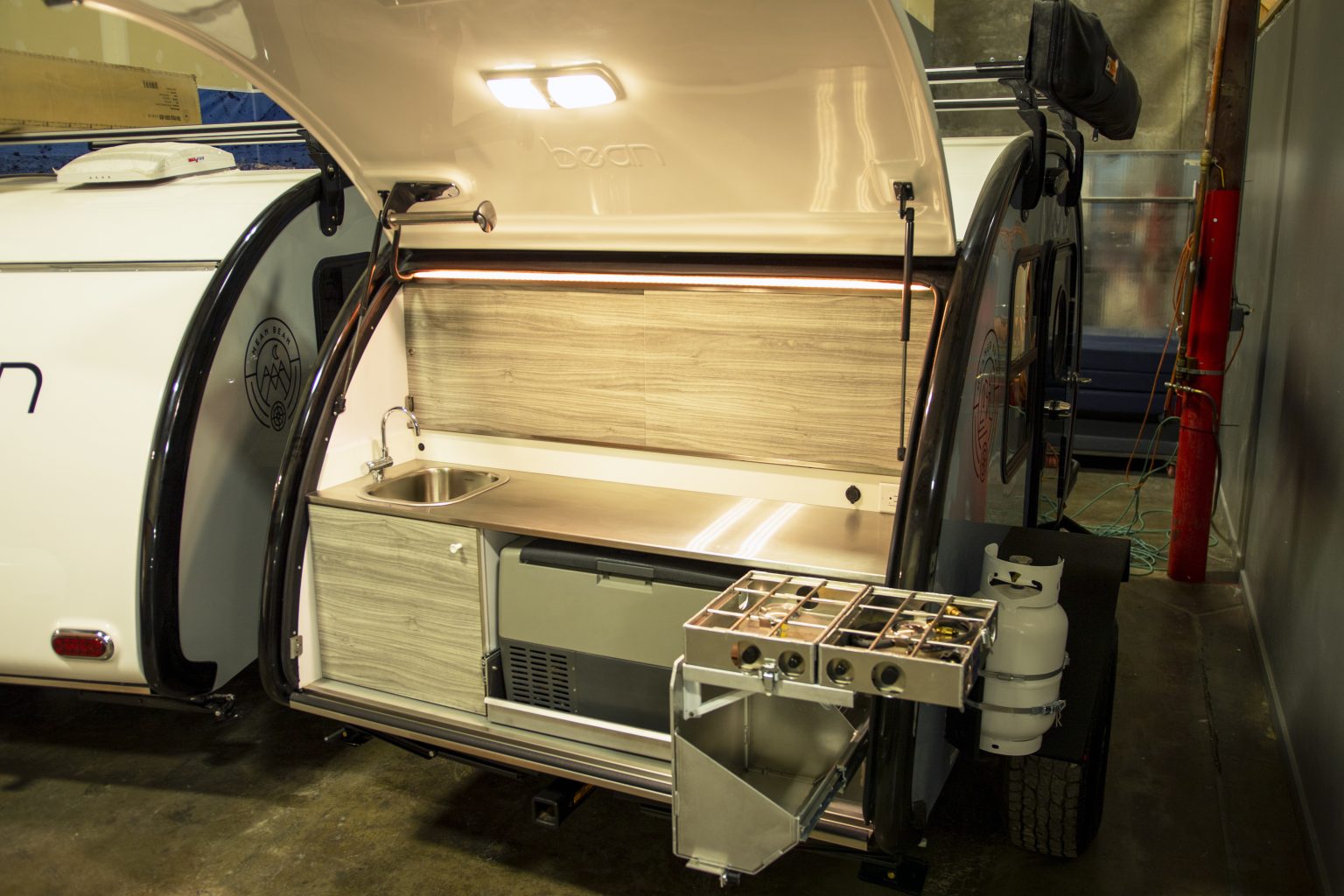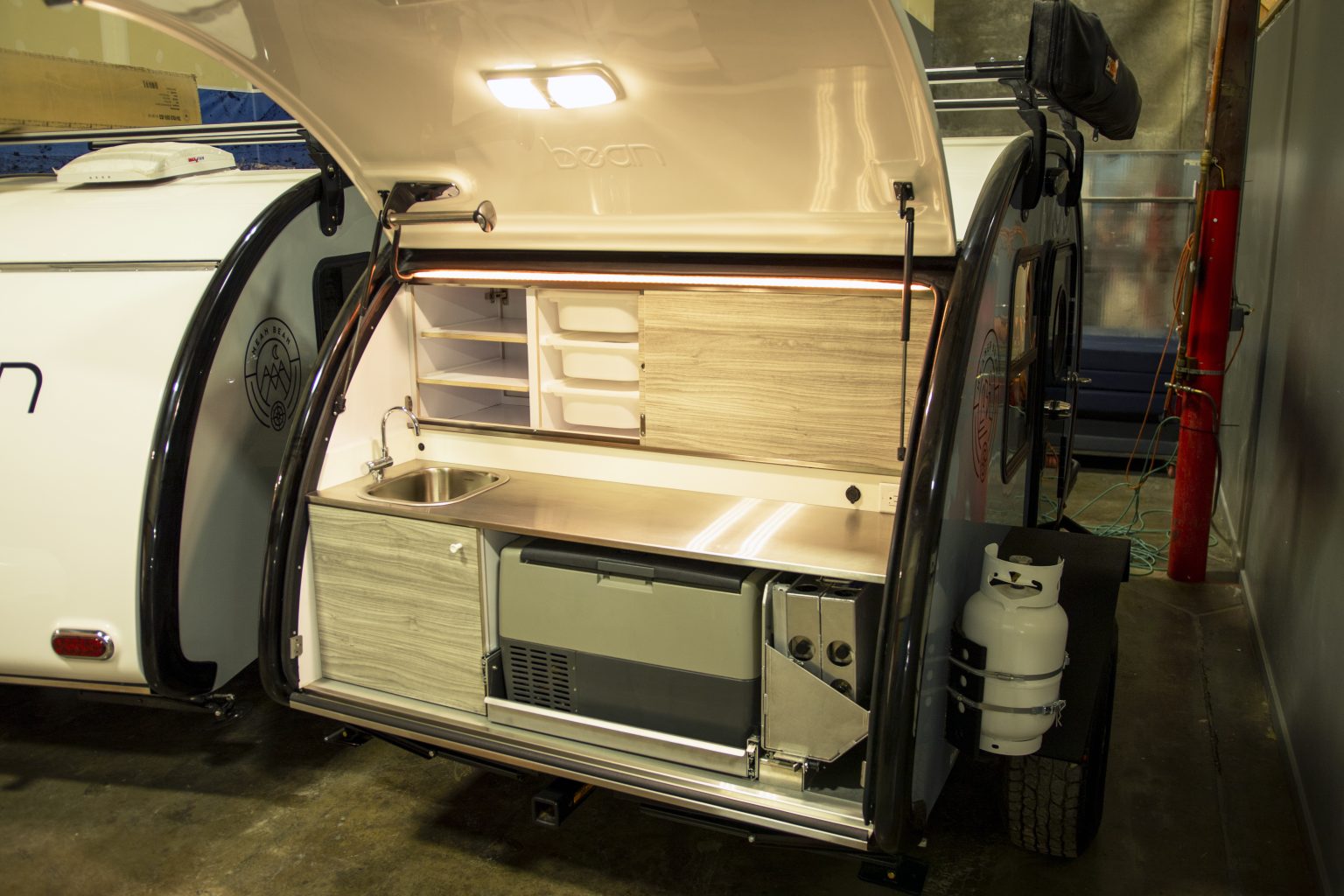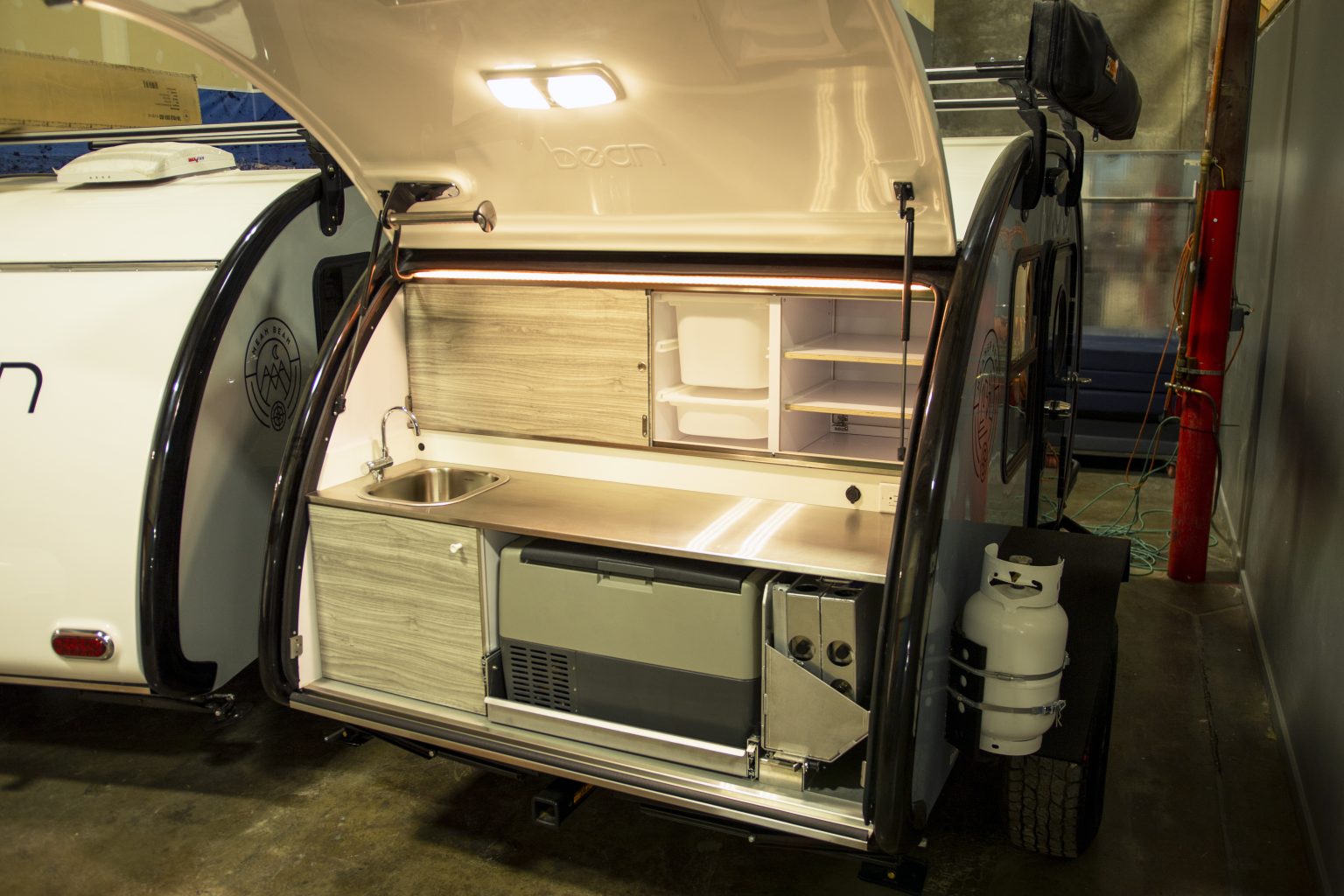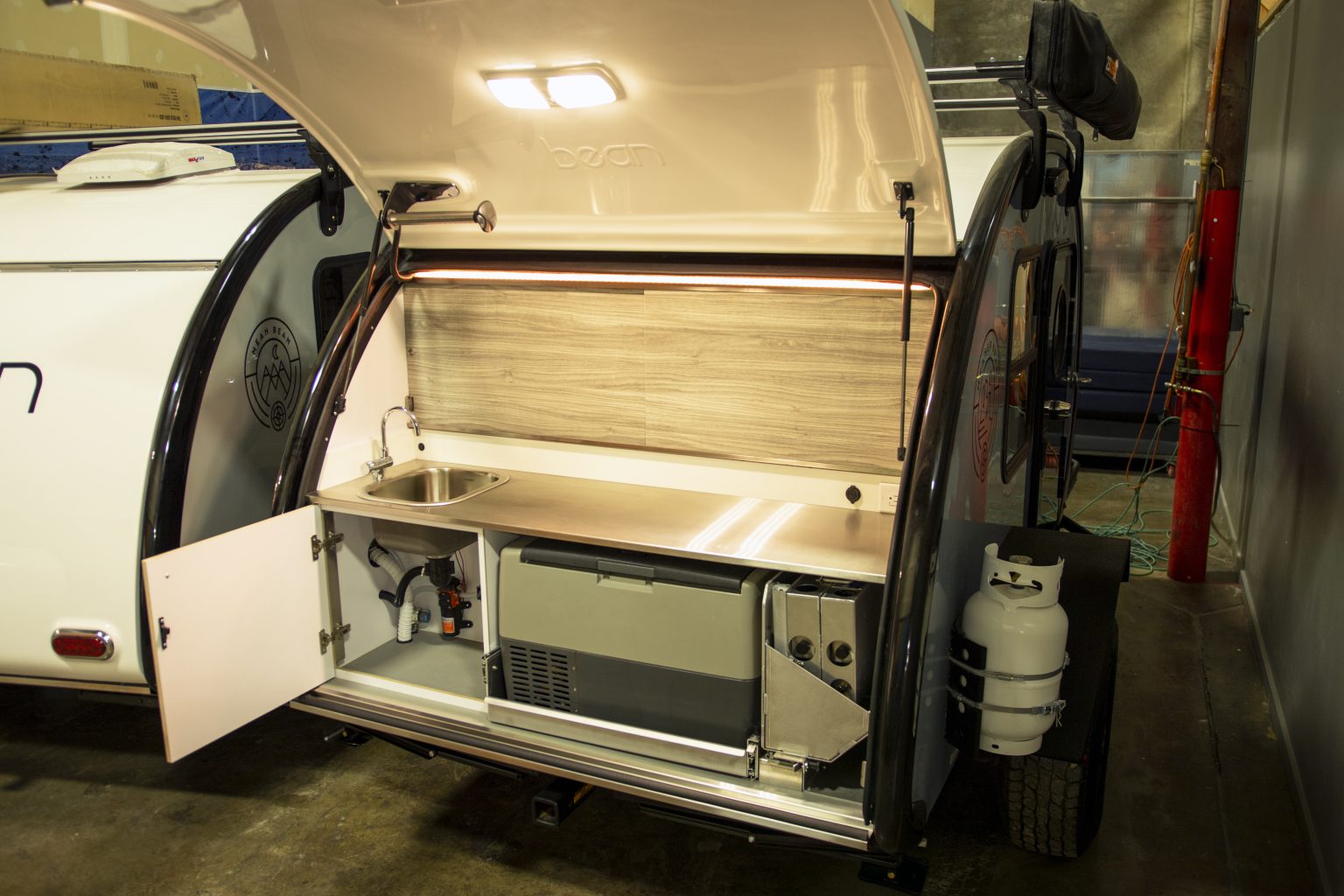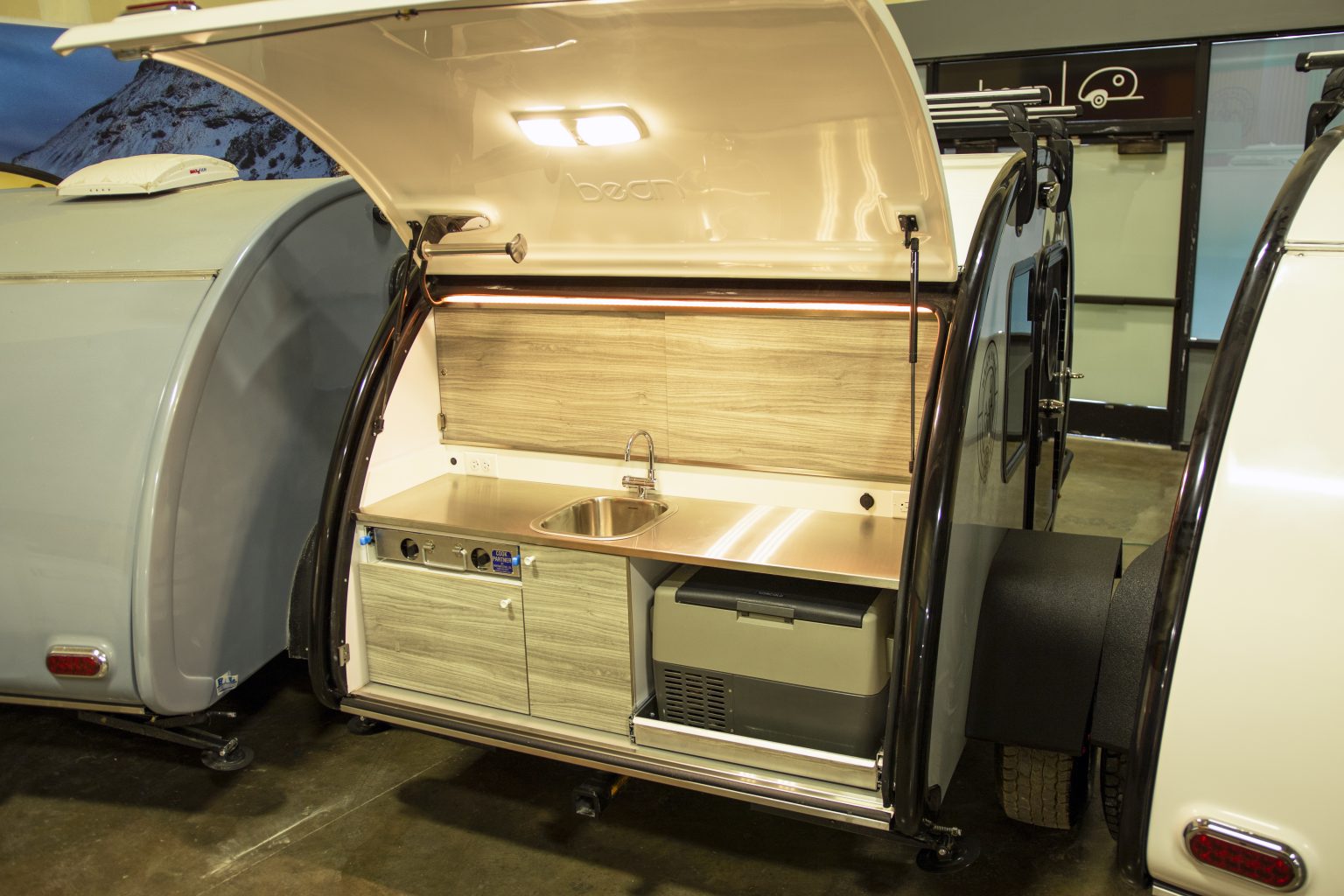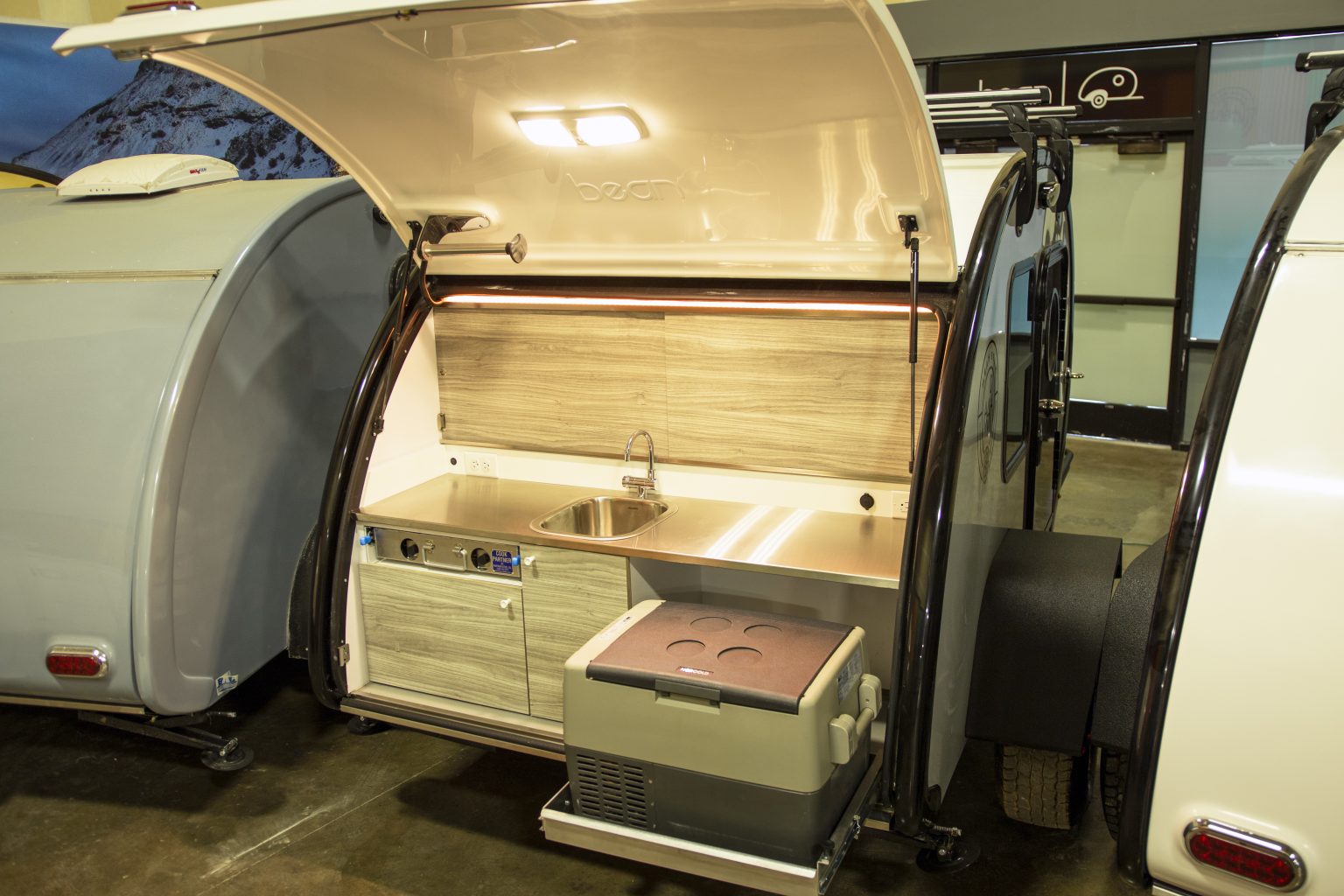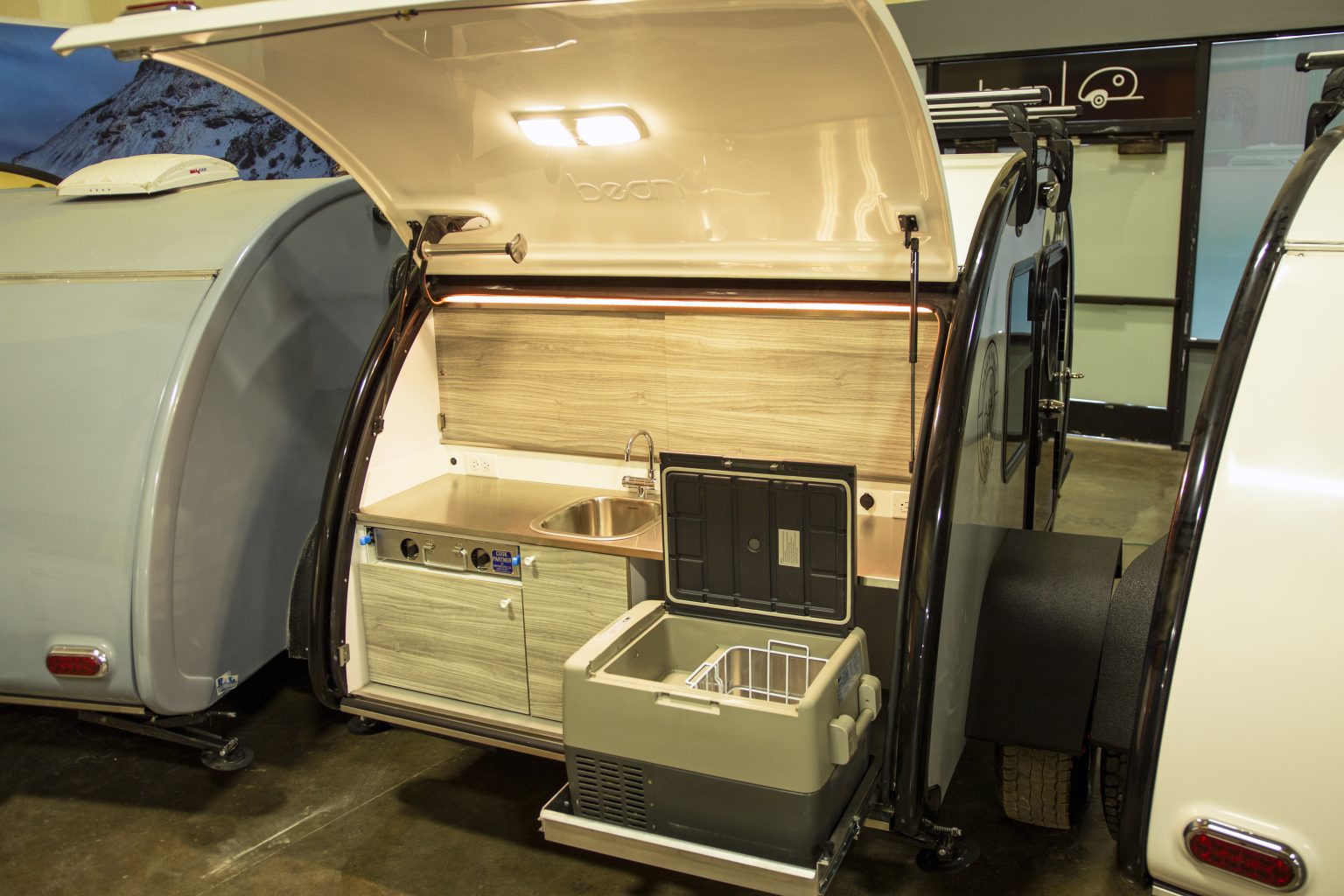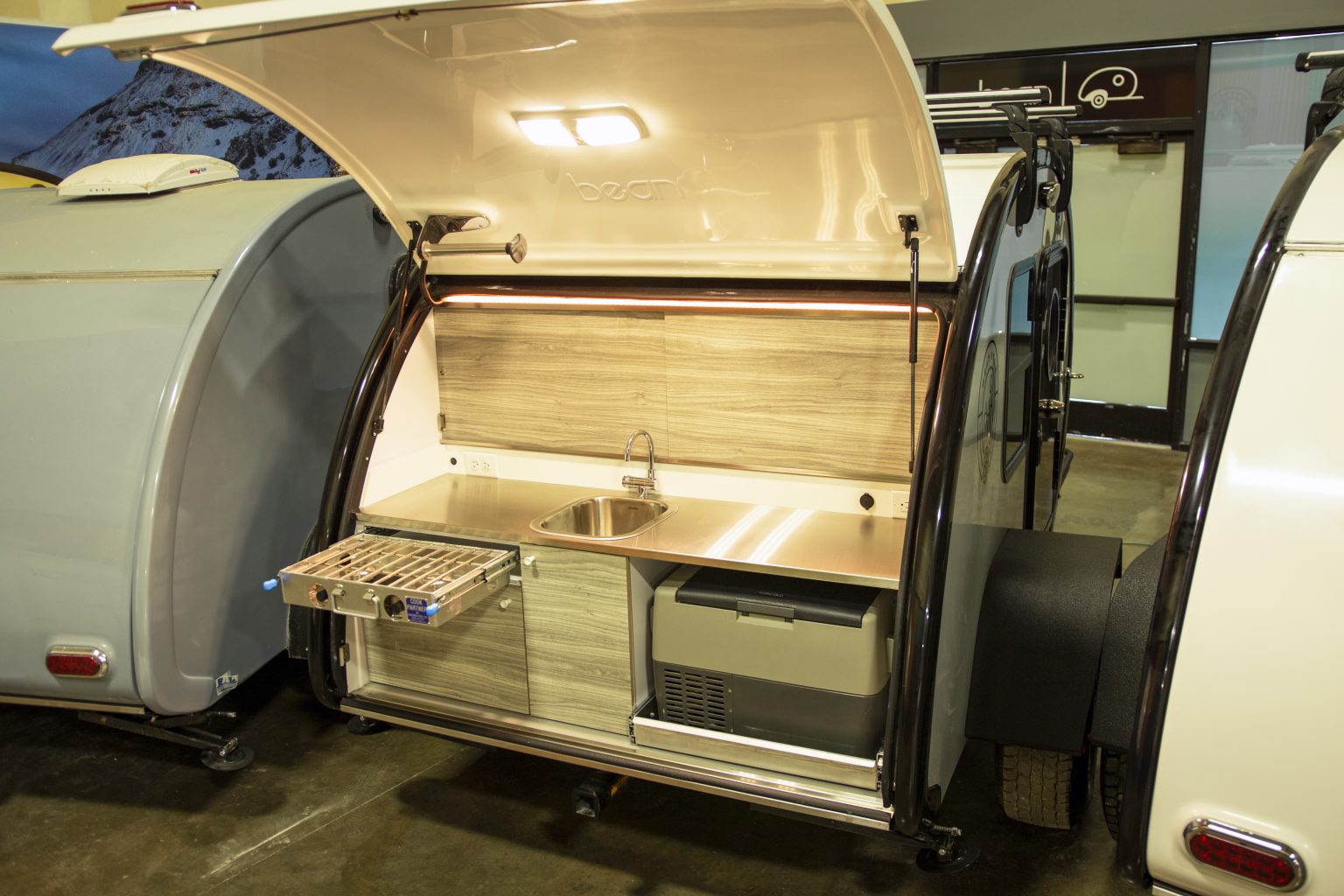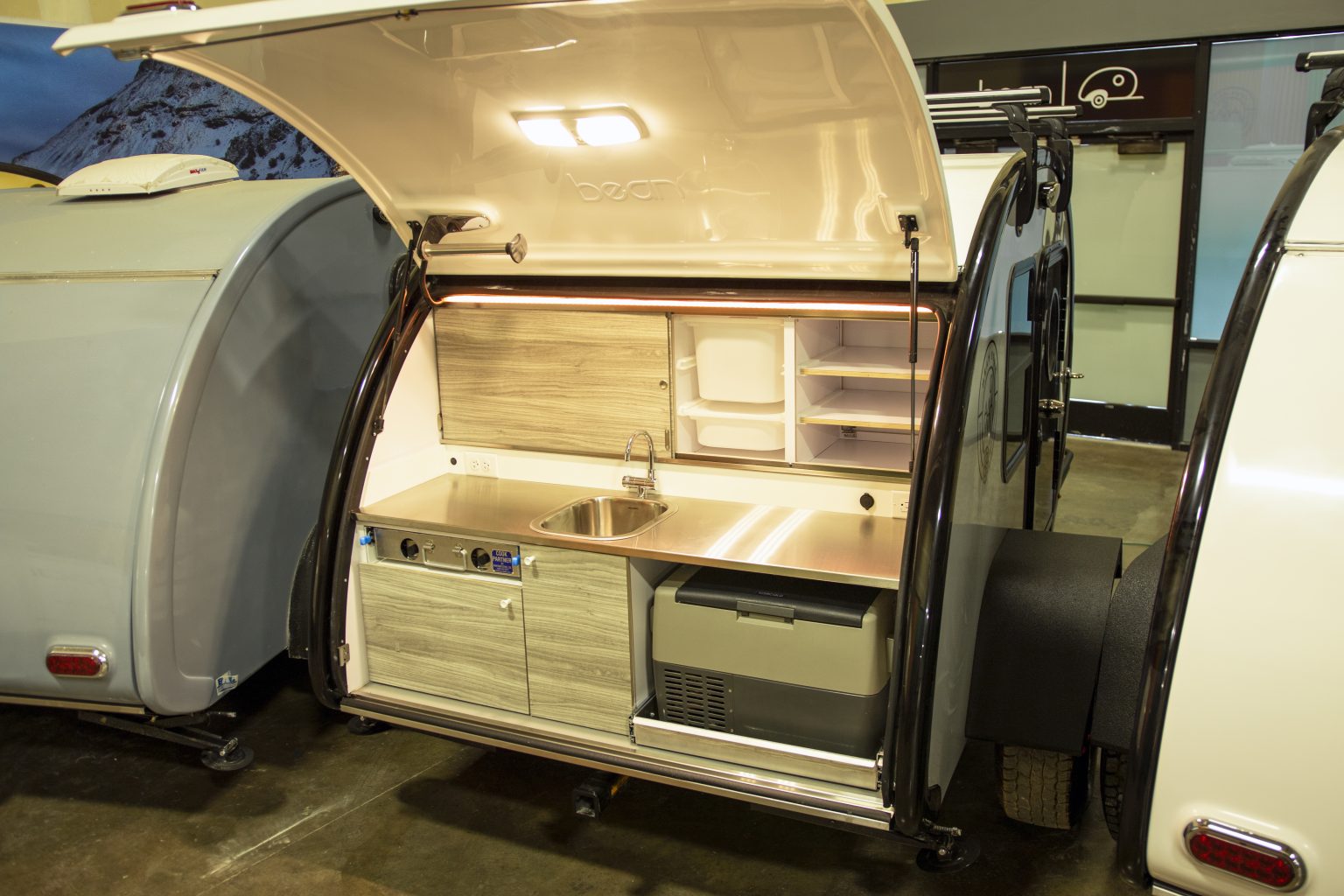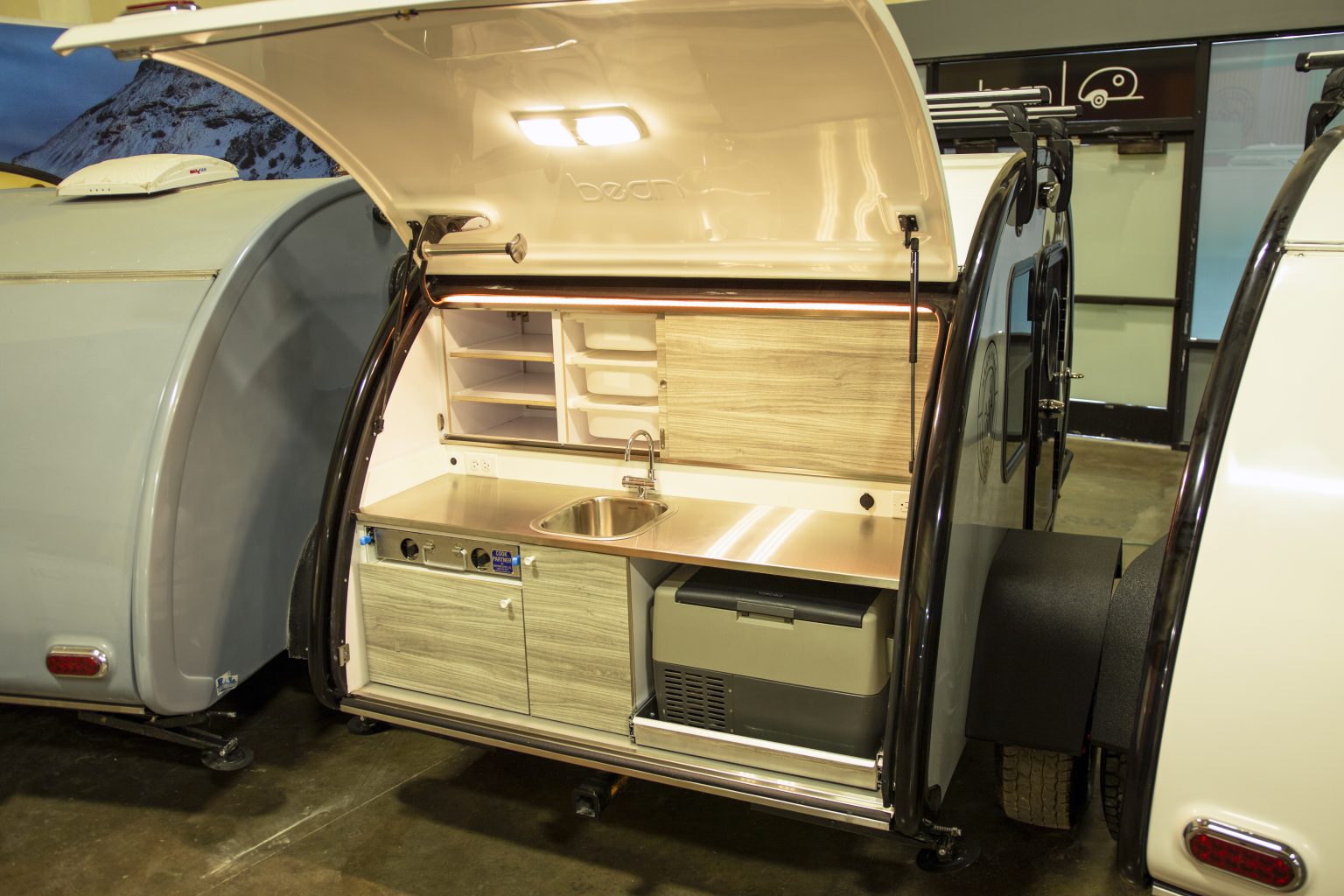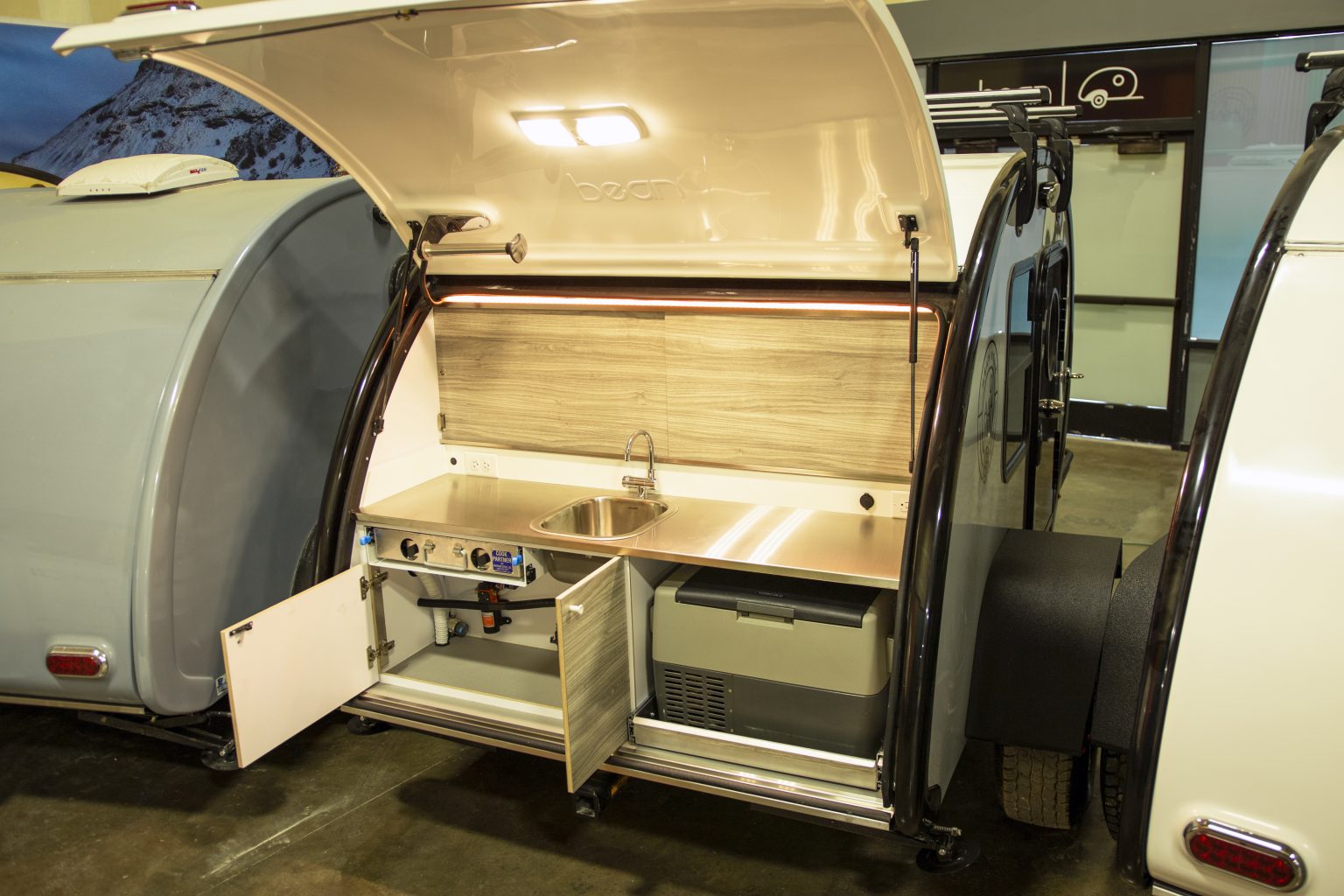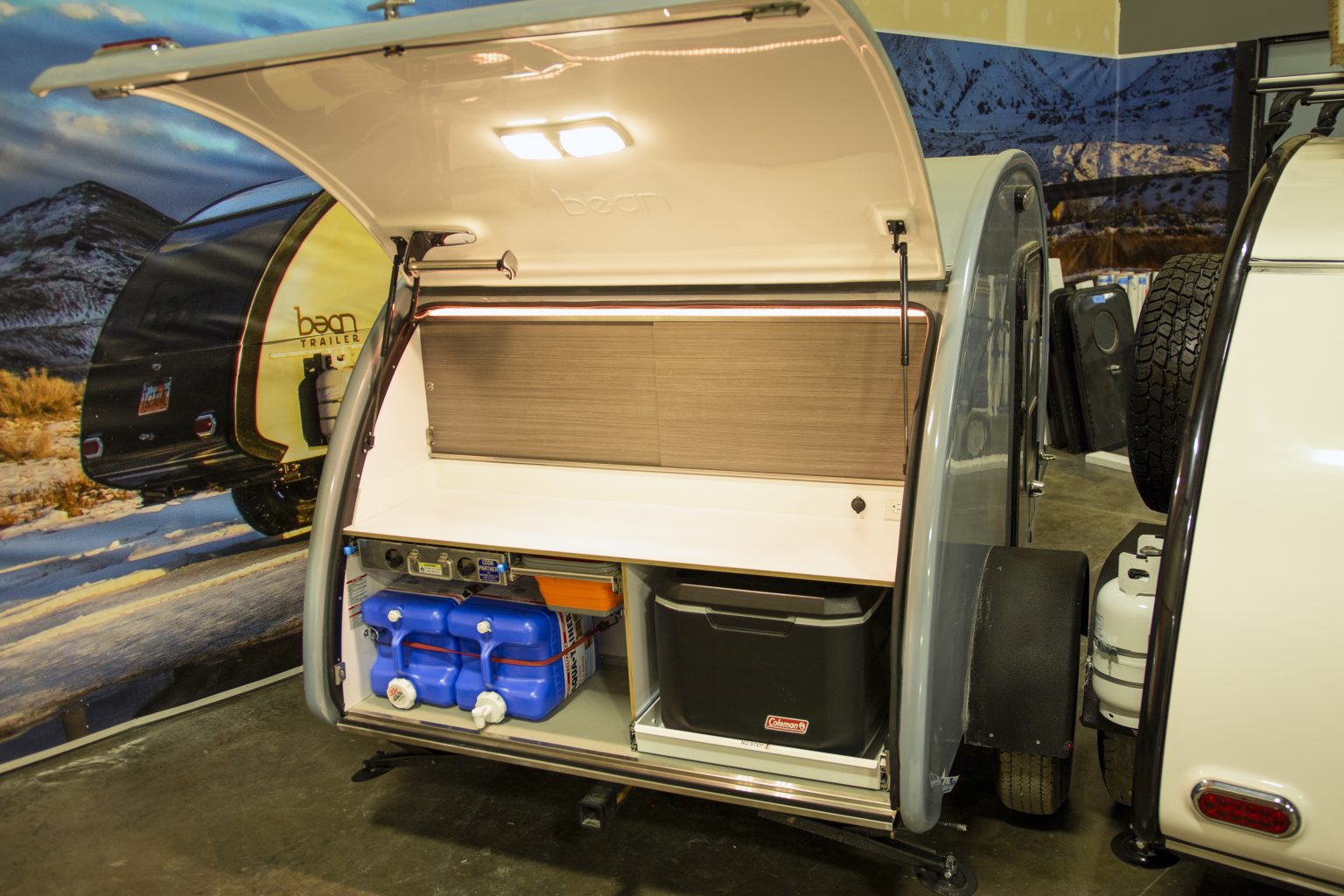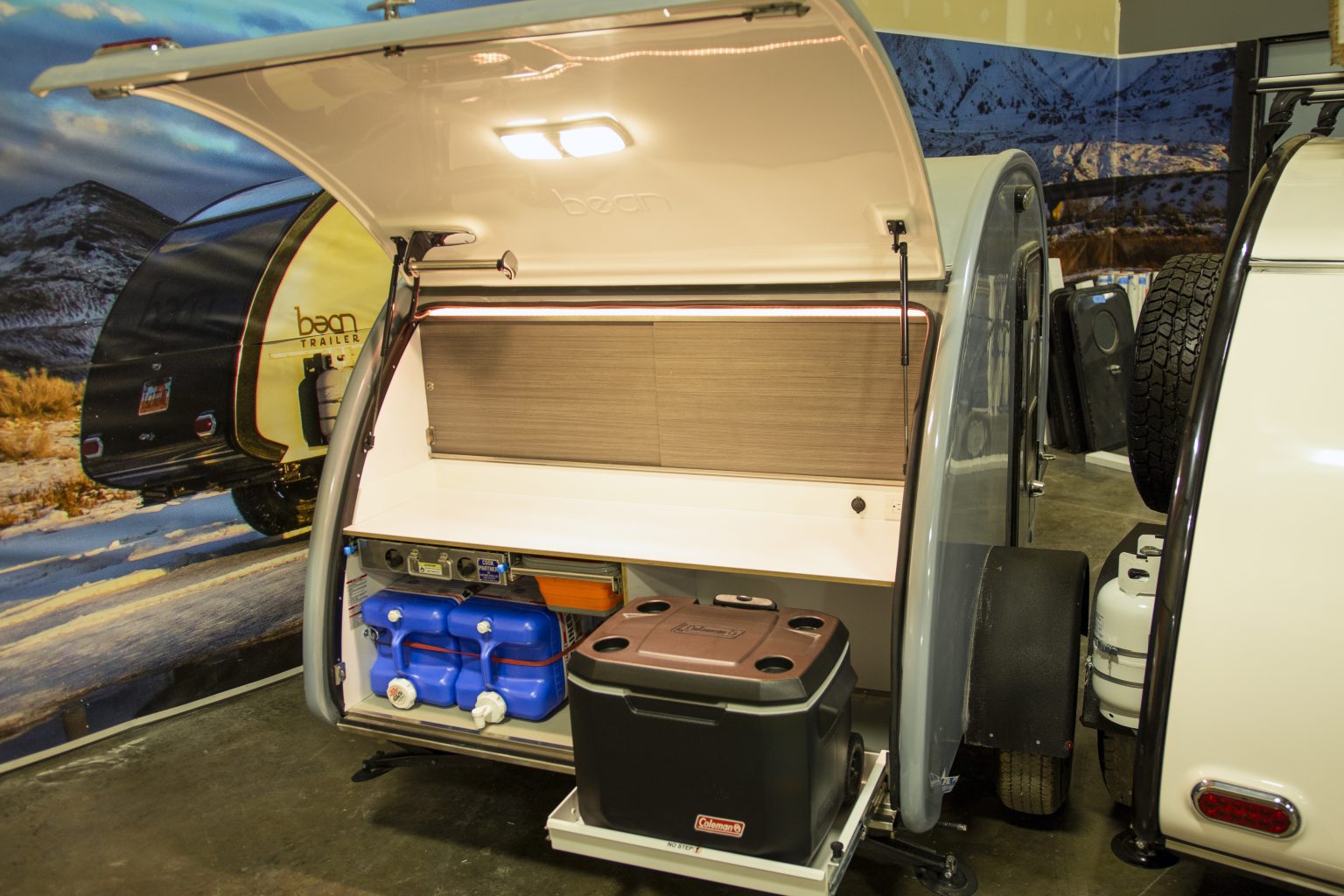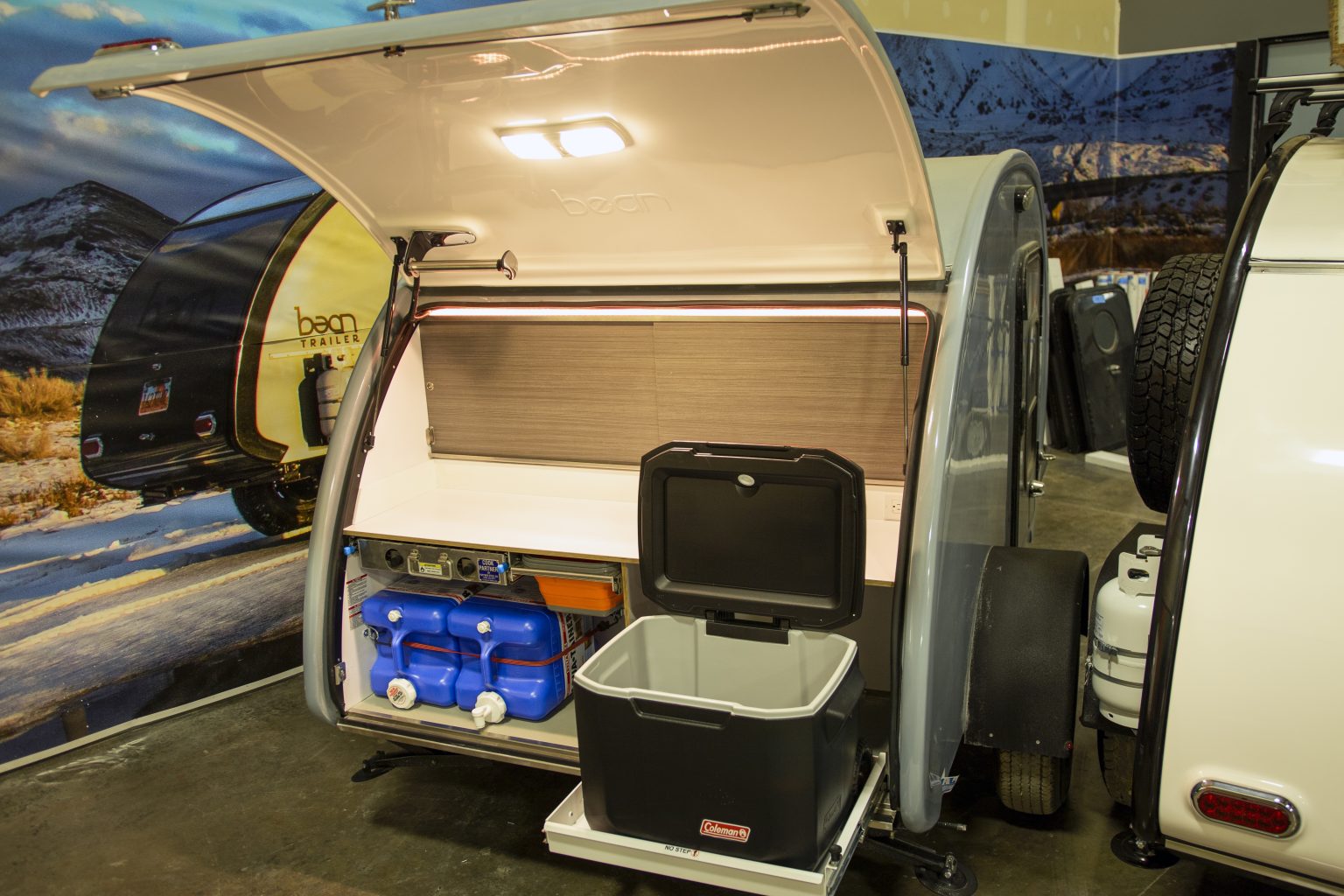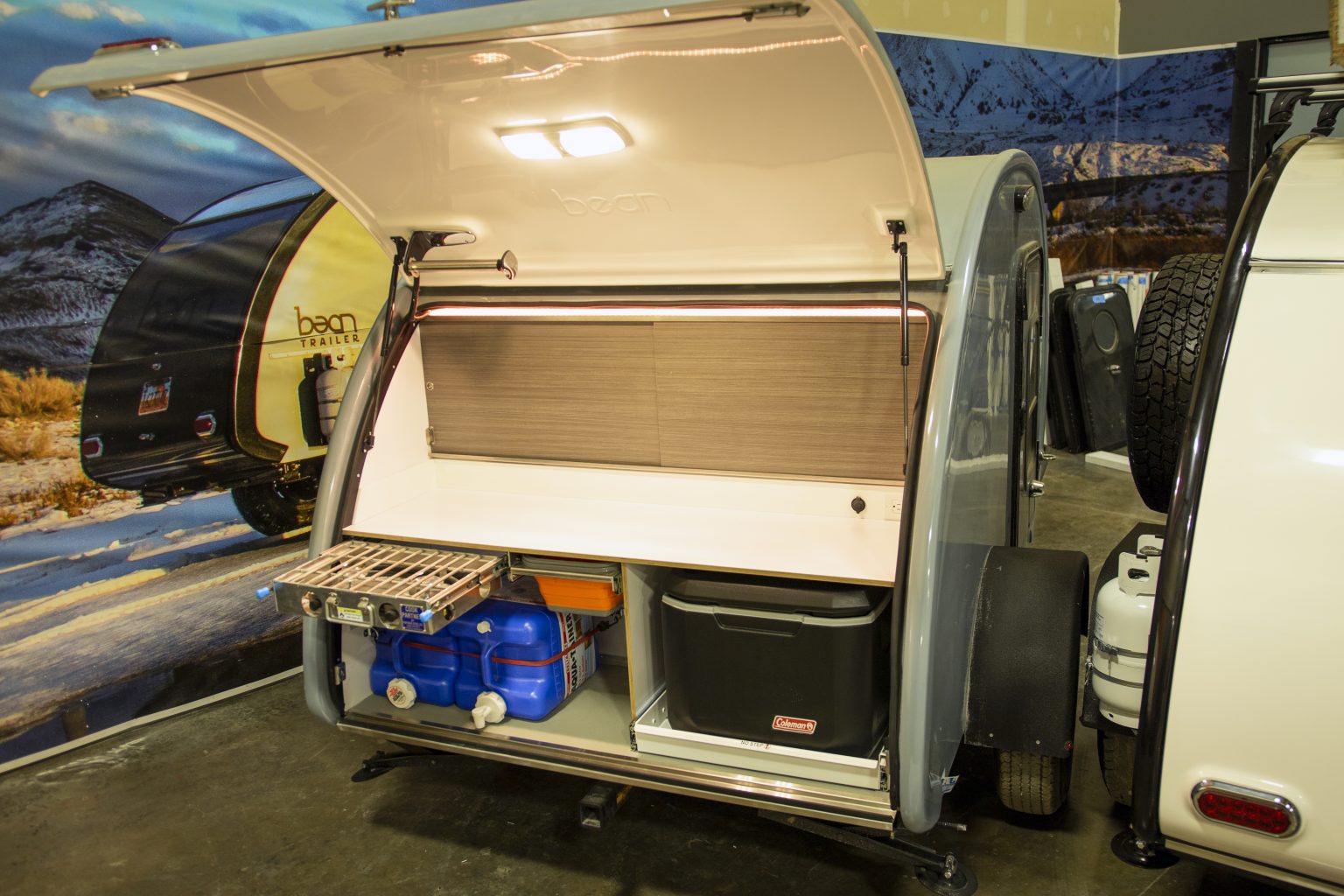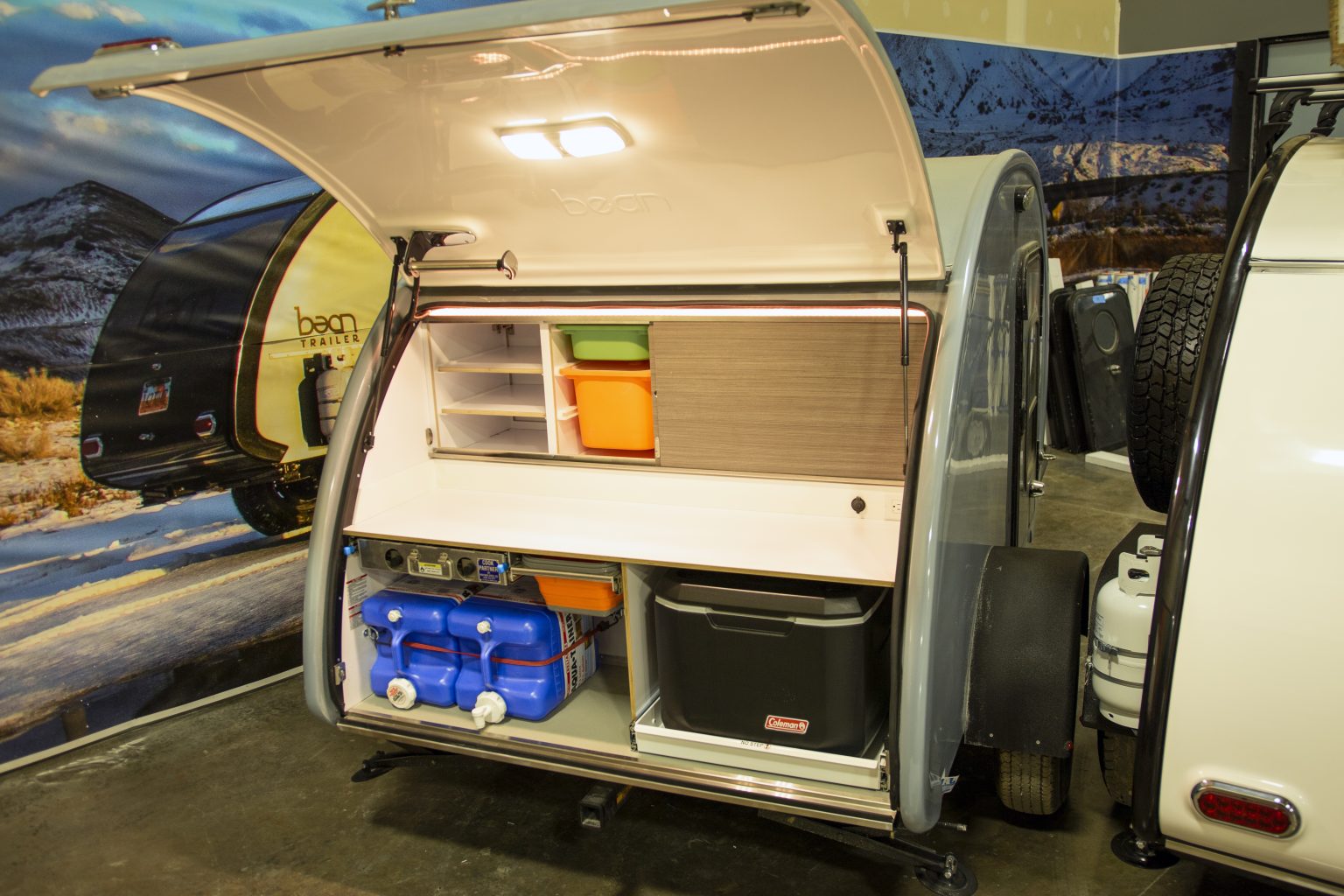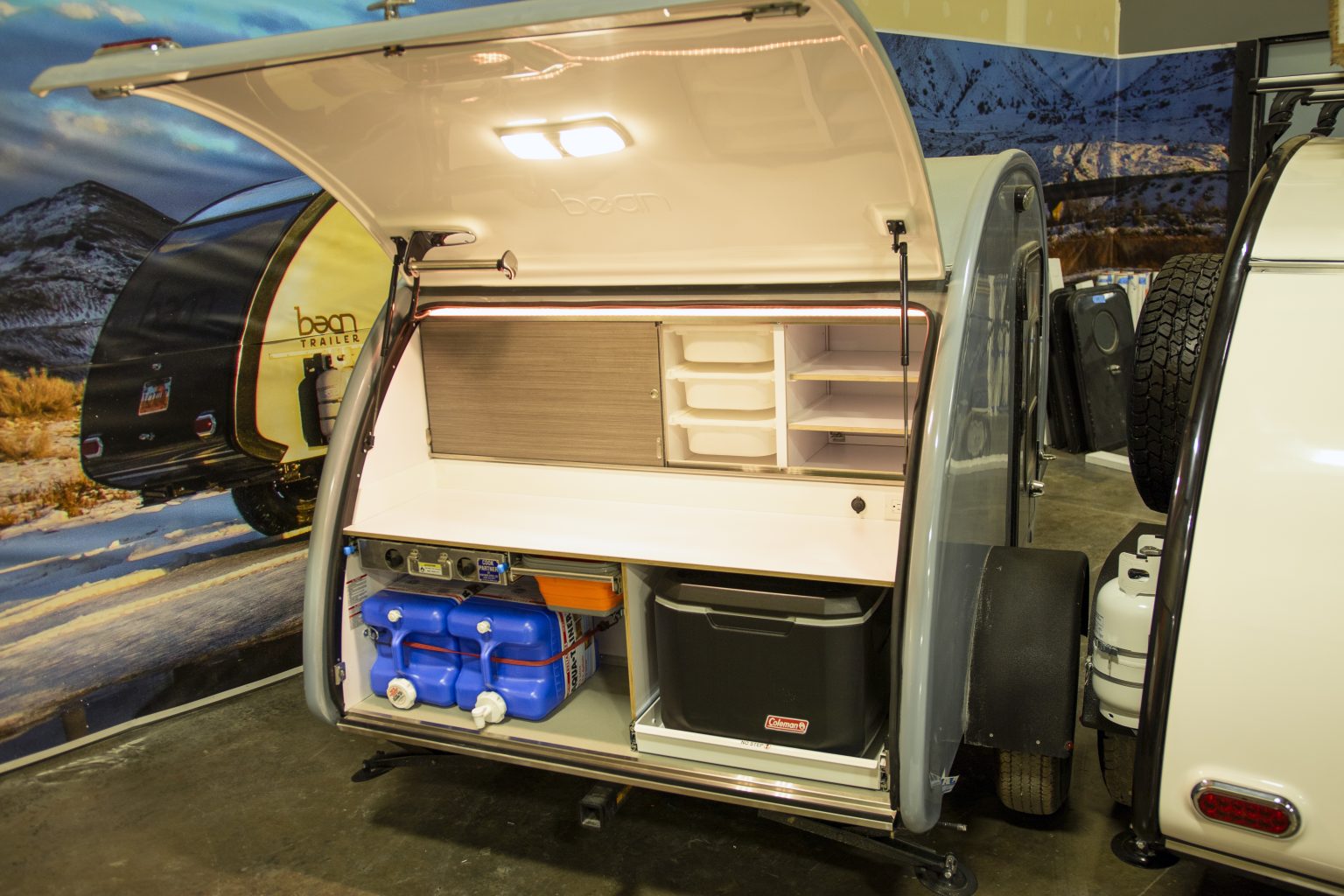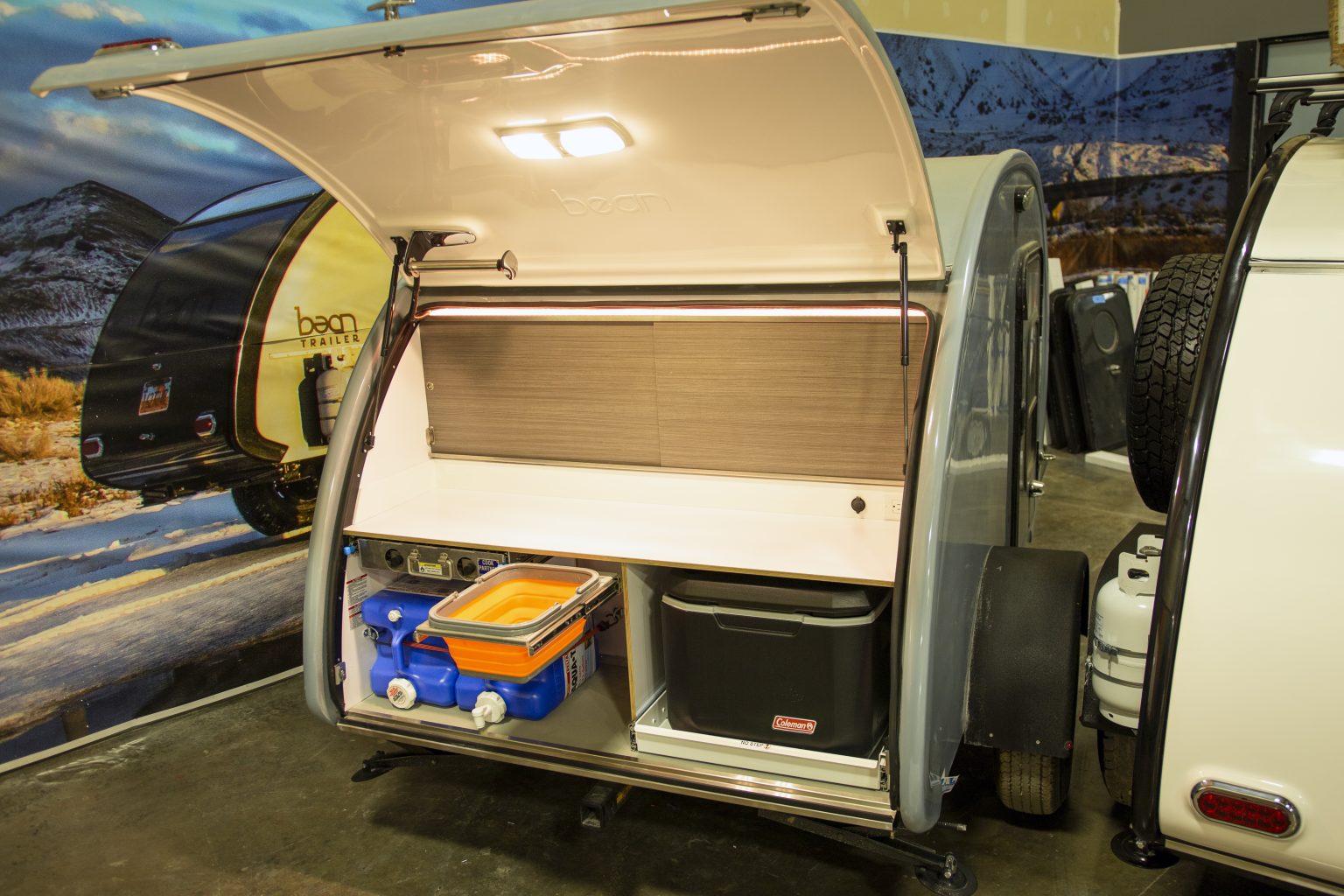Galley Configurations
Galley Comparison Walk Through
Join us today for a side by side galley tour! We provide four different galley configurations to select from, Base, Base Plus, Premium and Premium Plus. Each kitchen design is tailored for preparing food, cooking, and for multiple unique camping preferences.
Compatible with: All trailer models
Black Bean Galley
Included with Black Bean
- Hatch mounted dome light
- RGB strip lighting with touch controller
- Paper towel dispenser
- 3 large drawers
- Stainless bottom edge trim
- Richlite counter and solid surface backsplash
- Large recessed sink with pressurize fold-down faucet
- Rack out 22″ Partner Steel 2 burner stove
- ICECO VL 45 Pro S with rack out tray and lock out system
- Upgrade with the Dometic 55
- Lower storage area with washable surfaces
- (2) D-ring tie downs
Compatible with: Black Bean
Premium Plus
Upgrade: $2,790
- Hatch mounted dome light
- RGB strip lighting with touch controller
- Stainless steel or white solid surface with solid surface backsplash
- Lower storage area
- Stainless bottom edge trim
- Paper towel dispenser
- 18″ Partner Steel two burner stove with rack-out.
- Left mounted stainless steel sink, with pump and folding/swivel faucet
- Under frame mounted 18 gallon water tank, pump and aluminum skid plate
- Cooler/fridge rack out 25.5 in x 17.5 in x 18.5 in
- Includes Coleman Extreme 50 qt. cooler
- Can accommodate Norcold NRF 45 fridge +$650 Upgrade
Compatible with: All trailer models
Premium
Upgrade: $2,190
- Hatch mounted dome light
- RGB strip lighting with touch controller
- Stainless steel counter and solid surface backsplash
- Center mounted sink with 18 gallon water tank
- Lower storage area with washable surfaces
- 18″ Partner Steel two burner stove with rack-out.
- (2) D-Ring tie downs
- Stainless bottom edge trim
- Paper towel dispenser
- Pump and filter.
- Cooler/fridge rack out 23 in x 17.5 in x 18.5 in
- Includes Coleman Extreme 50 qt. cooler
- Can accommodate Norcold NRF 30 fridge +$599 Upgrade
Compatible with: All trailer models
Base Plus
Upgrade: $1,490
- Hatch mounted dome light
- RGB strip lighting with touch controller
- Plastic laminate counter and solid surface backsplash
- Lower storage area with washable surfaces
- (2) D-Ring tie downs
- Stainless bottom edge trim
- Paper towel dispenser
- 18″ Partner Steel two burner stove with rack-out.
- Rack-out basin with collapsible/removable sink
- (2) 7 gallon aquatainer water tanks
- Cooler/fridge rack out 23 in x 17.5 in x 18.5 in
- Includes Coleman Extreme 50 qt. cooler
- Can accommodate Norcold NRF 30 fridge +$599 Upgrade
Compatible with: All trailer models
Base
Standard
- Hatch mounted dome light
- RGB strip lighting with touch controller
- White plastic laminate counter and
solid surface backsplash - Lower storage area with washable surfaces
- (2) D-Ring tie downs
- Stainless bottom edge trim
- Paper towel dispensers
- Includes Coleman Extreme 50 qt. cooler
Compatible with: All trailer models
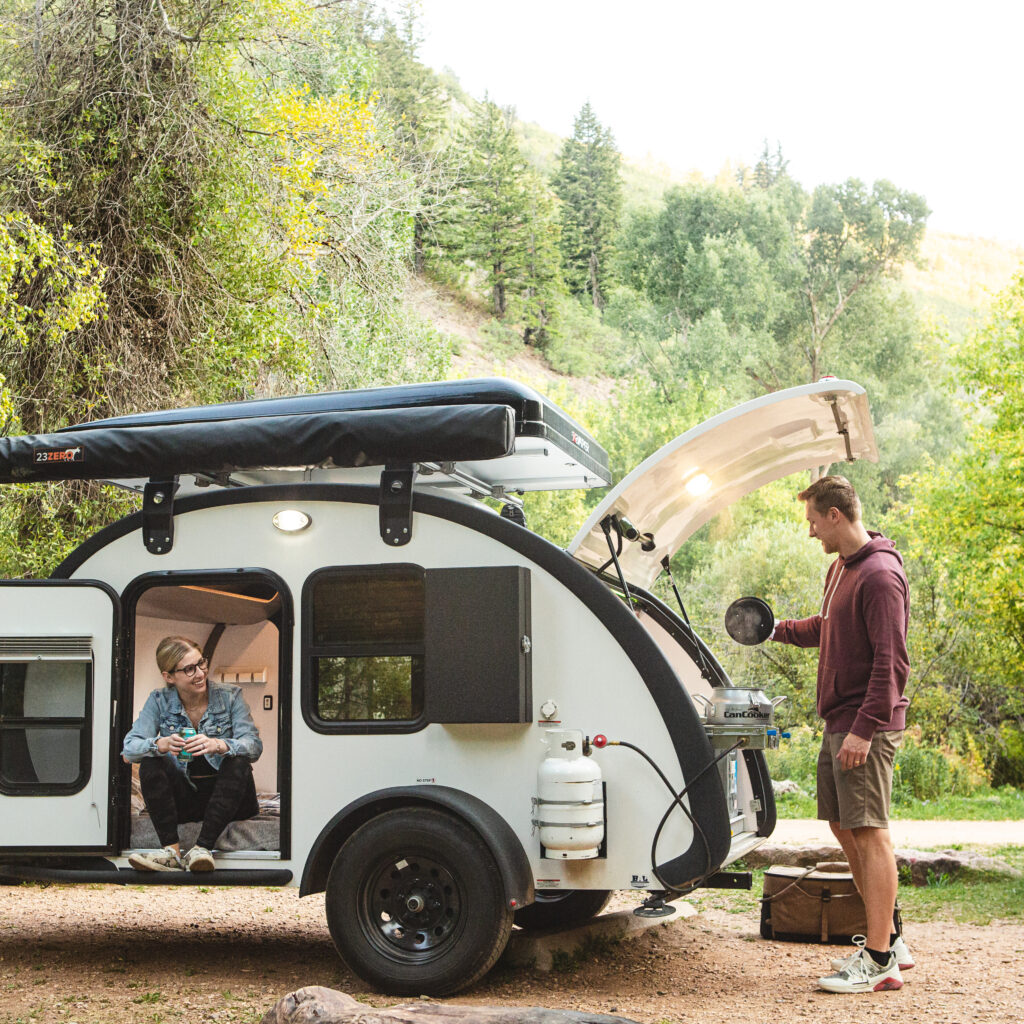

Everything you need and nothing that you don't. With a personalized Bean Trailer, you’ll be ready to take on the call of the wild.
Give our trailer experts a call to discuss which options are right for you!

